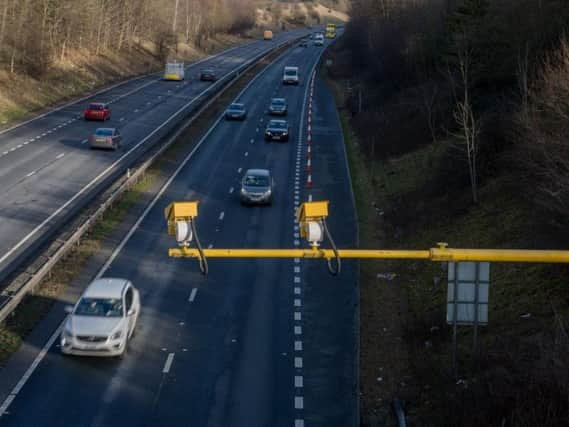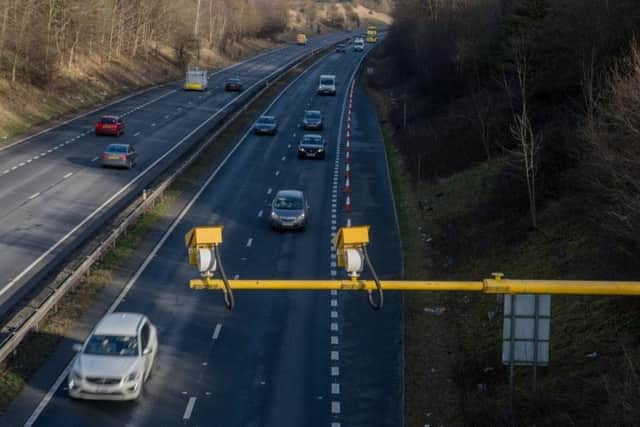Average speed cameras will be switched on again on the M621 in Leeds - this is when and why


Highways England announced on Monday that new roadworks are being put in place along the M621.The cameras were in place last year for a while with various speed limits. Now, the cameras are BACK, with a 40mph limit or 50mph limit at certain times of day in different parts of the motorway.
The work will take about six months to complete.
-> The Leeds businesses given one and two star food hygiene ratings in 2019Speed restrictions and reduced lane widths will be put in place.
Advertisement
Hide AdAdvertisement
Hide Ad

The clockwise carriageway between junctions 5 and 7 will be reduced to 40mph on the M621.
The anti-clockwise carriageway will be reduced to 50mph from M1 junction 43.
Most of the work will be carried out overnight between 8pm and 6am.
All lanes will be kept open during the day.
M621 junction 3 to M1 junction 43 will be closed overnight in both directions for the duration of the work and there will be diversion routes in place.
When are the average speed cameras going to be switched on?
Advertisement
Hide AdAdvertisement
Hide AdThe average speed cameras are physically in place now, but they won't be switched on until the end of next week - around April 5 to 8th. Highways England is set to confirm the exact date after consultation with West Yorkshire Police.
How can you avoid a fine?
Average speed cameras work by tracking the speed of your car between two points. So slowing down to go through the camera and then speeding up will not work.
Instead, the cameras, installed on bright yellow gantries overhead, take your number plate when you pass through the first camera, then your number plate again at the second, and perform a quick calculation based on the current time to work out how long it took you to travel between the two points.
If the time it took you to travel is quicker than could be done at the speed limit, you'll get a fine in the post.
Advertisement
Hide AdAdvertisement
Hide AdSo if the speed limit is 30mph and you drove at 35mph for 30 seconds, you'd need to drive at 25mph for 30 seconds to balance it out.
Do the cameras work at night?
Yes. They are fitted with infrared night vision to ensure they work night and day, and in any weather. Sorry.
Can the cameras run out of film?
No. Unlike some other speed cameras, average speed cameras are all digital. So they can issue an unlimited number of fines.
Can the cameras catch motorbikes?
Yes, is the short answer.
If a vehicle changes lanes will they avoid any fines?
No. The cameras take pictures of every lane and cross-compare them. So changing lanes won't save you, contrary to popular belief.
Advertisement
Hide AdAdvertisement
Hide AdIf I speed through multiple sets in the same of road stretch, will I be fined multiple times?
It's not likely. Not every camera is paired to every other. So if there are four in a row, your speed between cameras 1 and 3 and 2 and 4 may be compared, or just 1 and 4, etc.
But you won't know which is connected to which. But on a separate section of the same road, you could get fined again.
If you are less than 10 per cent above the limit, will you get a ticket?
Advertisement
Hide AdAdvertisement
Hide AdNational Police Chiefs Council advice has suggested 10% as a buffer, but this is only advisory and in reality many forces are far stricter, especially as cameras become more accurate. In fact, according to the law you can legally be fined for being just 1mph over. The best method to avoid a speeding ticket? Don't speed, of course...
Highways England project manager Sujad Hussain said:
“These are vital safety improvements on a busy commuter route. We thank drivers for their patience and encourage them to allow extra time for their journeys, especially during rush hours.
“We will not only renew the safety barriers in the central reservation and verges, but also fully resurface the carriageway in both directions, further increasing safety.”